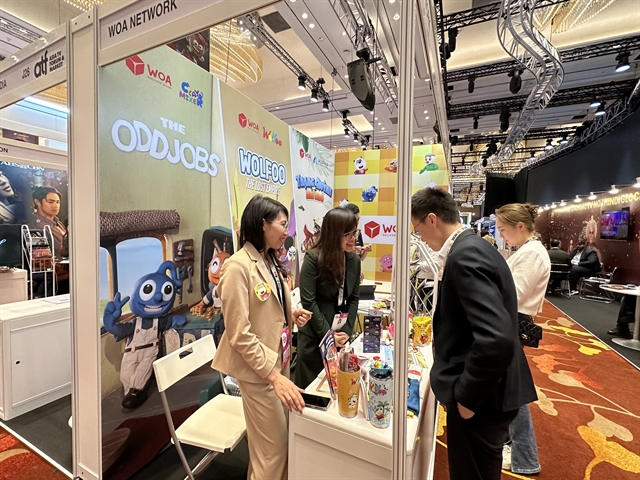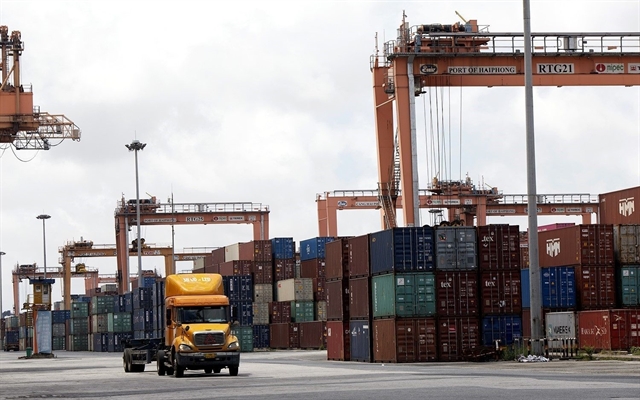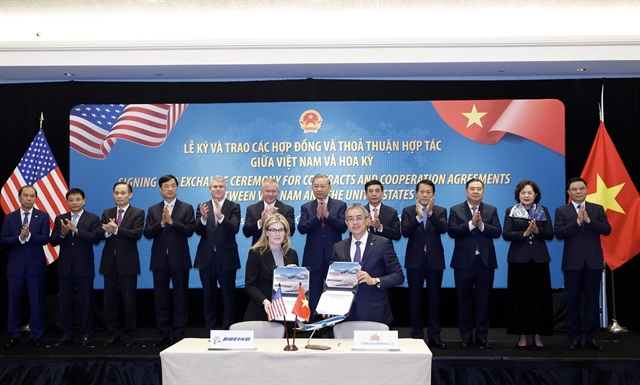 Inner Sanctum
Inner Sanctum

The 10th Singapore Media Festival held from November 30 to December 10 gathered thousands of top media professionals from over the world.
The event includes the Singaporean International Film Festival, Asia TV Forum & Market, Singapore Comic Con and Nas Summit Asia hosted by the Infocomm Media Development Authority (IMDA). IMDA leads Singapore’s digital transformation by developing a vibrant digital economy.
Việt Nam News reporter Lê Hương talks to Jean Ng, director of IMDA Media Industry Cluster, during the event.
 |
| Jean Ng, IMDA Media Industry Cluster Director. VNS Photo Lê Hương |
Inner Sanctum: What did you make of the event this year?
It was one of the best showings for the media festival in terms of the number of attendees. Last year, the Singapore Media Festival was one of the biggest events in the country in terms of the number of attendees, over 60,000.
This year I think we had a larger turnout, primarily because China had opened up. Last year, we didn’t have China on the trade floor. This year we had a very big China press [presence] here. So we anticipated that we would see more participants, both business-to-business participants and the business-to-consumer participants.
Given the stellar kind of line up and programming for the Singapore International Film Festival, we saw a lot more people going to the theatres and watching some content.
Because unlike Indonesia and even Việt Nam, actually, film attendance in Singapore hasn't quite gone back to pre-COVID levels. So we're hoping that events like this will try to encourage Singaporeans to return to movie theatres.
Inner Sanctum: What is the IMDA mission now?
I mean, I made this mission for the media sector. I think to me, it's quite clear we want to grow strong media enterprises.
We want our enterprises to be able to compete regionally to get us a big slice of the economic value and the global content pie. That's really our mission, and we need to be able to grow our local enterprises, as well as help our talents be more recognised and acknowledged globally, so that they are then sought after for projects. So these are the two broad kind of missions for IMDA.
Inner Sanctum: It's the 10th edition. So what's different compared to previous years?
There were new elements for us this year. One is that we added Nas Summit to our list of events. We have realised that the creator economy is a space that is growing, and we wanted to support our creators to also upskill and to make business deals.
The second new component is that we enhanced the Singapore Comic Con with a creator element to provide opportunity for creators to meet their followers and fans in the community.
Therefore, these are the two elements that are new for this year's media festival. Of course, it comes alongside our regular programming like the ATF as well as the Singapore International Film Festival.
Inner Sanctum: What role does AI play in this future?
Well, I think AI and Gen AI is actually quite a sensitive topic globally. So, as you know, the writers and actors have gone on strike. I think it's been about six months and they just I believe today will start to rectify the agreement on how to govern AI.
So that's something that is sensitive because for creators, as people are concerned about their IPs, they're concerned about copyright infringements, they're concerned about who can use their likeness. Or, if they are going to be paid.
They’re also concerned about if AI can replace jobs, which is very common. I think this worry is not just in the media sector, but anywhere in the industry.
So, that's something that we are treading cautiously. I think we see AI as obviously a tool that can help improve certain efficiencies. And some of our media companies are already using AI to help with some of the more repetitive work.
So, it does bring benefits, but because of its slightly more sensitive nature, I think we are also approaching it with some care. We think there may be a need to put in place some guides on how we want to use the technology, and we're watching this space very closely.
I don't think our view is fully formed at this stage, given how things are still evolving on the global stage. We need to approach this topic very sensitively.
 |
| A booth of Woa Network, the only Vietnamese representative at the Asia TV Forum & Market. VNS Photo Lê Hương |
Inner Sanctum: What do you think about Việt Nam’s participants in this event and the region’s media industry in general?
Việt Nam is up and coming.
It's becoming a critical market for us in terms of collaborations. Every year we launch Call for Proposal for feature films and one of the categories of that is the Southeast Asian Co-production grant, we provide 300,000 dollars for every successful project that we award, but the condition is that it must have a Singapore talent involvement as well as Southeast Asia representation.
In the last few years, what we've noticed is that increasingly our Singaporean talents have been collaborating with Vietnamese talents.
This year, one of the projects that we had awarded was a Singapore-Việt Nam co-production, and we are eagerly expecting that it will be a good production.
For example, Inside the Yellow Cocoon Shell, that's a Singapore-Việt Nam co-production, among others.
So we see Vietnamese talent definitely up and coming, especially in the film industry.
I know that the cinema crowd in Việt Nam is very passionate about supporting local film, and I think that's something that we all envy, and it will be interesting to see how Vietnamese content start to also sell and be accepted globally. So that's something that we are all keeping a watch on, but definitely their talent is already collaborating with ours.
Inner Sanctum: I want to ask about virtual production. How does it help in terms of productivity for filmmakers in Singapore?
I think for virtual production, it does help somewhat with productivity. Today our talents are still kind of learning how to use the technology.
So, the productivity gains may not be as apparent as when you know you're fully trained, but the bigger value for virtual production is more the ability to expand that creative horizon.
Meaning that you can then imagine, like I said, scenes that you can't do in real life, right? Imagine then what kind of stories you can create from such scenes.
I think the bigger value for virtual production today is really more in terms of the creative application of virtual production, as well as the ability to create new worlds that will expand the kind of stories you can tell. VNS




